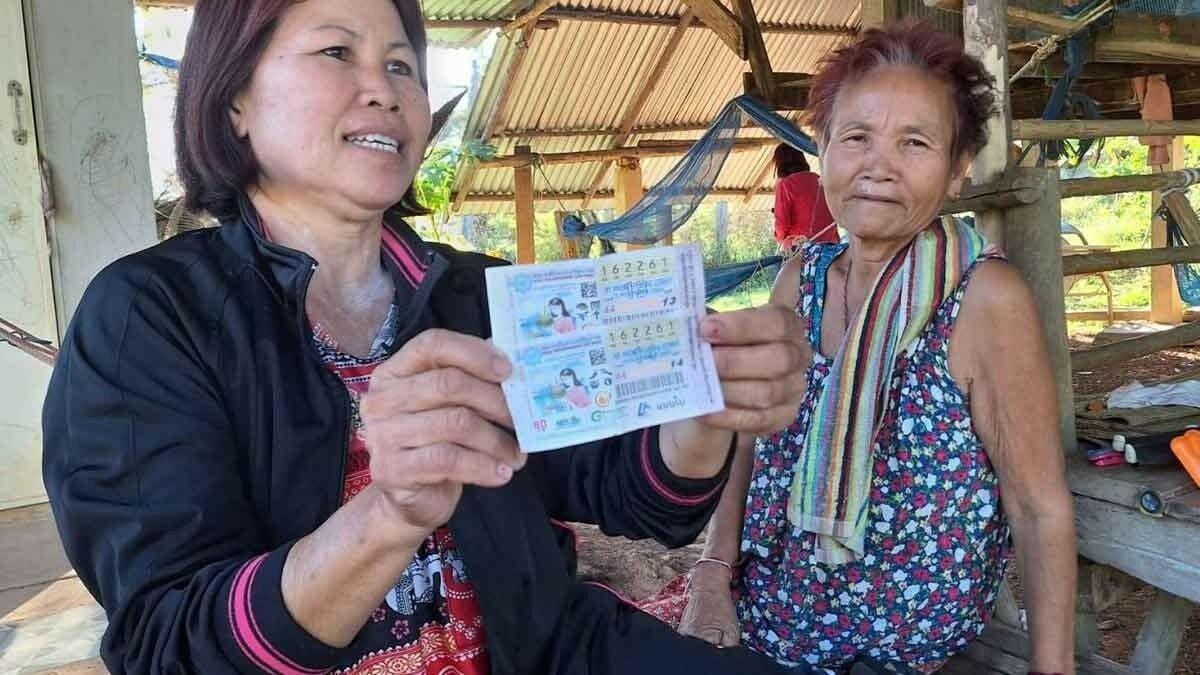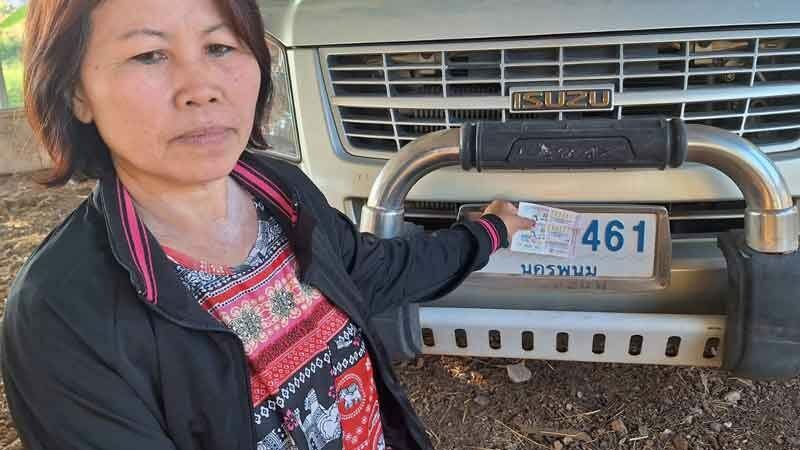Nakhon Phanom lottery scam leaves woman 4000 baht short

A woman from the Nakhon Phanom province found herself in a distressing situation when she discovered that her lottery tickets were past their valid date, just as she was preparing to celebrate her supposed win with a grand meal. This incident has raised concerns about fraudulent sellers in the area.
Nang Maew Thai, a 53 year old resident of Saen Phan subdistrict, Thatu Phanom district, Nakhon Phanom province, had bought two lottery tickets with a friend. These tickets were intended to be cashed in after the draw on November 16.
However, upon attempting to collect their winnings at a local bank, they were informed that the tickets were from a previous draw and therefore invalid. This unexpected news left Nang Maew Thai and her family without the anticipated 4,000 baht they had planned to use for a celebratory meal.
“I was so excited and ready to celebrate with my family. I want to warn others about these deceitful vendors.”
On Sunday morning, December 1, Nang Maew Thai, accompanied by her husband and grandchild, visited a clinic in Nakhon Phanom. They strolled by the Indochina market near the Mekong River afterwards.
It was here that they encountered a vendor selling lottery tickets. Maew Thai inquired about a specific number, 61, which the vendor claimed to have, selling a pair for 200 baht. The vendor even wished her good luck, which Nang Maew Thai hoped would come true.
“When the results were announced around 4pm, I was overjoyed. I told my sister and husband, and we planned a big meal as a celebration, all because of a dream I had.”
The woman referred to a dream about her husband’s vehicle from which she derived the lottery number.
The next day, Nang Maew Thai entrusted her friend, 52 year old Suchada, to cash the tickets at the Bank for Agriculture and Agricultural Cooperatives (BAAC), located approximately 2 kilometres from their home. However, Suchada soon called with bad news, the tickets were invalid as they were from a previous draw. Fortunately, the bank officials did not take any action against them for attempting to cash outdated tickets.
Reflecting on this unsettling experience, Nang Maew Thai expressed her disappointment and highlighted the impact such fraudulent activities could have, particularly on tourists or those winning big prizes. She considered filing a complaint with the police.
The woman’s husband, 54 year old Urai, described the vendor as a woman of medium build, with dark skin, wearing a hat and mask. He confirmed that the number 61 matched the registration number of their vehicle, which prompted them to buy the tickets without checking the date.
“I want to urge these vendors not to engage in such deceitful practices. It’s disheartening for those who think they’ve won when they haven’t.”
Nusara Sarasinth, a finance officer at the BAAC branch, confirmed that they only accept current winning tickets and advised customers to verify their tickets before attempting to cash them. The incident gained attention on social media, with other individuals coming forward about similar experiences with outdated lottery tickets, reported KhaoSod.

Frequently Asked Questions
Here are some common questions asked about this news.
Why do fraudulent lottery ticket sales continue to occur in Thailand?
Lack of strict enforcement and oversight allows deceitful vendors to exploit unsuspecting buyers.
How could stricter regulations impact lottery sales in Thailand?
Enhanced regulations could increase trust, reduce fraud, and potentially boost legitimate sales.
What if buyers had better tools to verify lottery ticket validity immediately?
Instant verification tools could prevent fraud, ensuring buyers only purchase valid tickets.
Why might tourists be particularly vulnerable to lottery scams in Thailand?
Unfamiliarity with local practices and language barriers can make tourists easy targets for scams.
How can the experience of Maew Thai influence future consumer behaviour regarding lottery purchases?
Her story highlights the importance of verifying ticket details, prompting others to be more cautious.
Latest Thailand News
Follow The Thaiger on Google News:


























